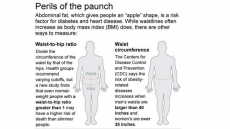NEW YORK — U.S. health officials issued new guidance Tuesday for doctors whose pregnant patients may have travelled to regions with a tropical illness linked to birth defects.
Doctors should ask pregnant women about their travel and certain symptoms, and — if warranted — test them for an infection with the Zika (ZEE'-ka) virus, the Centers for Disease Control and Prevention said Tuesday.
If there are signs of an infection or there are other reasons to believe the fetus is affected, ultrasounds should be considered to monitor the baby's development, the CDC advised.
The virus is spread through mosquito bites, and there have been outbreaks in parts of the Caribbean and Latin America. There is no medicine or vaccine for it.
Usually the infection only causes a mild illness, if at all. Most infected people don't develop symptoms. In those that do, the worst of it involves fever, rash, joint pain, and red eyes — which usually lasts no more than a week.
But there's mounting evidence linking the infection to a birth defect called microcephaly, in which the head is smaller than normal and the brain may not have developed properly.
Usually rare, more than 3,500 babies with the condition have been reported in Brazil since October. The connection to Zika is still being investigated, and health officials note there are many causes of the condition, including genetics, and exposure during pregnancy to alcohol and certain germs and toxic chemicals.

In the Brazil cases, most of the mothers apparently were infected during the first trimester, but there is some evidence the birth defect can occur later in pregnancy, CDC officials have said.
Last week, CDC officials said pregnant women should consider postponing trips to 14 destinations — Brazil, Colombia, El Salvador, French Guiana, Guatemala, Haiti, Honduras, Martinique, Mexico, Panama, Paraguay, Puerto Rico, Suriname and Venezuela.
They also advised women who are trying to get pregnant or thinking of getting pregnant to talk to their doctor before travelling to those areas, and to take extra precautions to avoid mosquito bites.
Health officials say no infections have occurred in the United States, except for one in the U.S. territory of Puerto Rico. The kind of mosquitoes that can carry the virus are found in the southwestern United States. The mosquito also spreads other viruses that cause dengue fever and chikungunya.
In the last year, there have been a dozen confirmed cases among U.S. travellers, including two pregnant women in Illinois and one in Hawaii, whose baby was born with the birth defect. She was likely infected while living in Brazil, Hawaii health officials said.
The CDC's priority was to alert pregnant women to the situation, even though there are a lot of lingering questions, said Dr. Tom Frieden, the agency's director.
"There's a lot we don't know," including how much Zika is in the different areas, or how likely it is that Zika infection in a pregnant woman will lead to the birth defect, he added. Perhaps there's another factor which also plays a role in whether a child develops the birth defect, he said Tuesday.





